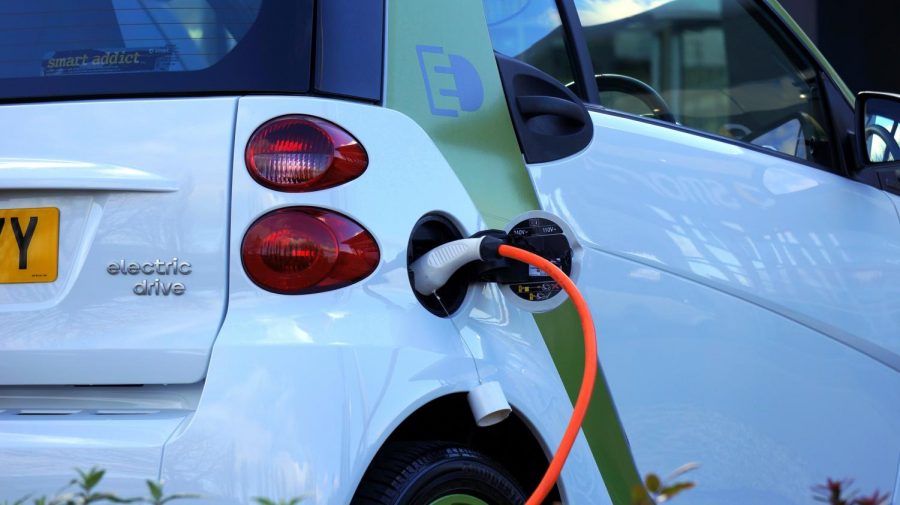The Drive to Stop Climate Change
June 27, 2021
It is no secret that climate change is a pressing issue in today’s society. As humans advance, so does technology and machinery, resulting in a plethora of carbon emissions being produced and entering the atmosphere. Now, the planet is in crisis. As climate change continues to worsen, action is becoming more necessary than ever before. It can seem overwhelmingly difficult to tackle, however, many steps are being taken to help assist the movement. One major and beneficial step being taken includes conversion to electric vehicles.
Transportation is one of the largest sources of carbon emissions, accounting for 15 percent of all emissions. Vehicles are essential to society and are undoubtedly necessary for most individuals. However, as vital as they are, they are equally as harmful to the environment. In order to cut down on the number of emissions from vehicles, electric vehicles are the most favorable solution.
Fuel-consuming vehicles constantly release harmful gases into the environment, including carbon dioxide, carbon monoxide, and nitrogen oxides. These gases lead to a buildup of carbon that is trapped in the atmosphere, which contributes greatly to climate change –a situation that will continue to worsen unless action is taken.
Electric vehicles are just as efficient as fuel-consuming vehicles and benefit the consumer and the environment in various ways. For the consumer, electric vehicles will eventually save more money, as the cost to maintain an electric vehicle is significantly cheaper compared to fuel-consuming vehicles. Electric vehicles have fewer maintenance issues, as they contain fewer parts that require maintenance; do not require oil changes; and are cheaper to charge. The national gas rate is around $2 while it only costs a few cents per mile to charge an electric vehicle.
Environmentally, the advantages of an electric vehicle can drastically reduce the damage done by fuel-consuming vehicles. Electric vehicles are not dependent on fossil fuels and also have better mileage than conventional vehicles. This helps to stop the fossil fuel industry and protect environmentally sensitive areas such as the Arctic. Lastly, the gases that are released from the exhaust in a conventional fuel-consuming vehicle are not released from electric vehicles.
Although most electric vehicles are traditionally more expensive than conventional vehicles, the benefits are worth it in the long run both economically and environmentally. As technology advances, so will electric vehicles. Over time, the prices of these vehicles will decrease, and the technology will become more advanced, resulting in faster charges, better mileage, and stronger batteries.
By making the change from a fuel-consuming to an electric vehicle, not only individuals will save more money, but will also play a part in helping the environment heal at a faster rate. Through electric vehicles, as a society, we can drive to stop climate change.








